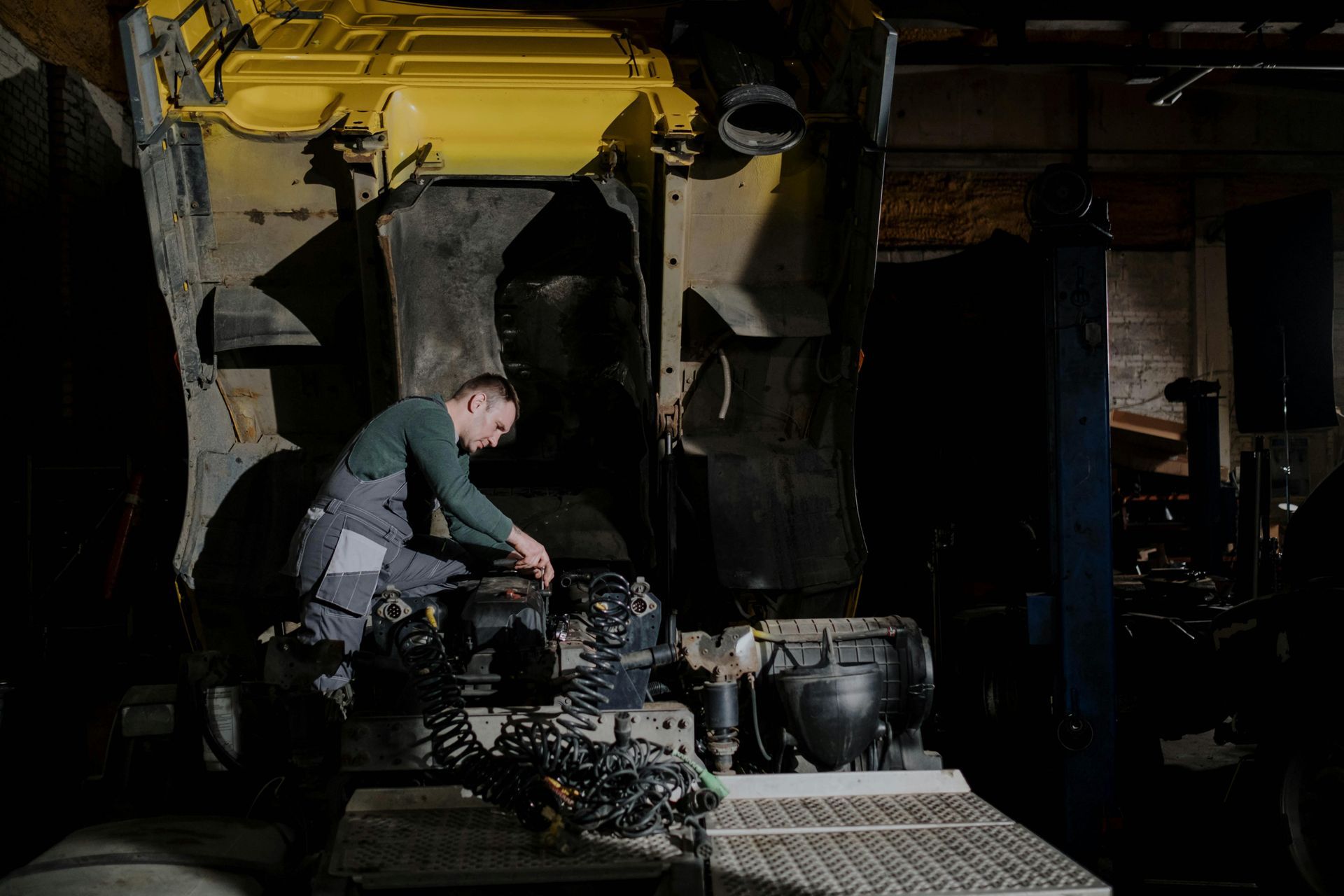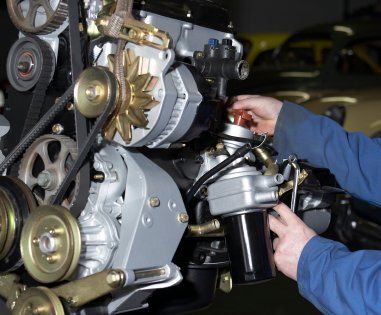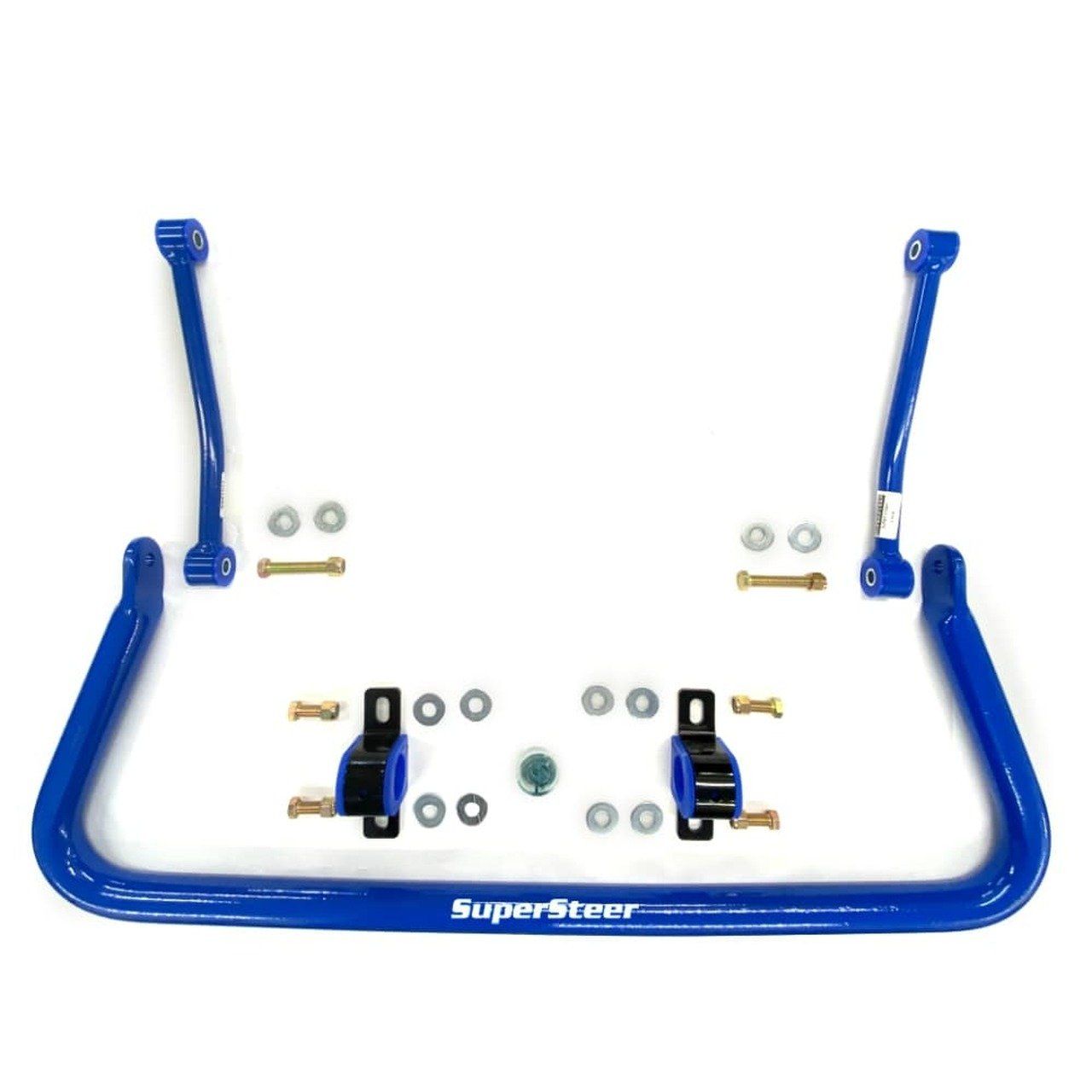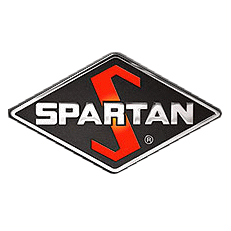How Often Should You Change the Oil in Your Truck?
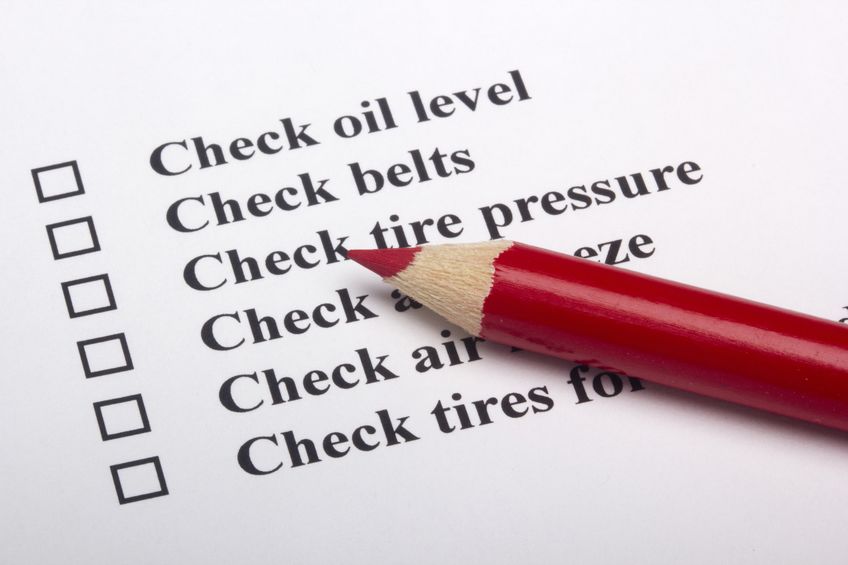
There are so many safety and maintenance issues to consider when running a truck, especially if you want to avoid unnecessary visits to a truck repair shop. Of these, one of the single most important is staying on top of your truck's lubrication. Without regular oil changes and monitoring of the condition of the oil in your vehicle, you could easily start doing real damage to your engine and other critical components.
So, let's talk for a minute about when to change your oil and everything else you need to know about maintaining the lubrication in your rig.
We probably don't need to tell you that regular oil changes are necessary unless you want some very expensive truck repair bills. However, if anything, articles on the topic often don't talk about just how important oil changes are - or your choices in lubrication.
As one of Ohio's top destinations for RV and truck repair, we've seen a lot of engines that wore out far too quickly because of low oil, or improper lubrication.
How Often Should Your Oil Be Changed?
This is a fairly complicated question because there are many factors that can affect how quickly your oil starts to degrade. As mentioned above, each type of oil has a different expected lifespan. Regular oil lasts for around 5,000 miles, semi-synthetic for 7,500 miles or so, and up to 10,000 for fully synthetic oil.
However, it also depends on the type of driving you do. If you stick entirely to city streets, which are relatively clean, there will be less dirt around to build up in the oil. On the other hand, if you go offroad a lot, that will substantially shorten the oil's lifespan. This is also true if you live in a particularly dusty area, or frequently travel in desert environments.
As a rule of thumb, all other things being equal, you can play it safe and change your oil twice a year, or roughly every six months.
Also, modern vehicles are now beginning to come equipped with oil-monitoring systems. They're in roughly half of the cars being sold today. That feature may be worth the extra cost since it will tell you if your oil needs changing - and that could save you a lot in truck repair bills!
The Importance of Regular Oil Changes
Even though gasoline engine technology continues to advance and become more robust, nothing can change how much abuse the engine goes through. The constant combustion and many moving parts cause a lot of heat to build up even under normal circumstances, and poor lubrication will only add to the heat. In addition, lack of lubrication means that friction will wear out components far more quickly than normal.
Nor is it enough to simply 'top up' your oil from time to time. Oil gets dirty through usage, with dirt and grime making their way into the engine and the oil. This builds up, and eventually, all that extra grit will impact the oil's ability to maintain its viscosity.
So sometimes, you simply need to drain out all the oil and replace it entirely.
When Does Your Truck's Oil Need to Be Changed?
This will vary somewhat depending on how long your trips are, and how hard you push your truck, but the general rule of thumb is that your truck should receive an oil change every 25,000 miles on average.
Yes, this does often mean multiple oil changes per year, which can be a hassle. But it's far less of a hassle than having your engine break down in the middle of a road. Emergency truck repair gets really expensive, really fast.
What Happens If the Oil Isn't Changed Regularly?
The oil in your truck is necessary for all the moving parts in your engine to keep pumping without generating excess friction or heat. Excess friction or heat can quickly damage the engine, as well as other moving components. No one wants a sudden massive breakdown.
That said, full breakdowns are relatively rare. The larger issue is that running an engine on low or dirty oil will reduce its longevity. Poor lubrication can take years off a truck engine's life. Worse, in many cases, poor lubrication management could potentially even invalidate your manufacturer's warranty.
Plus, a poorly lubricated engine is an inefficient engine. Changing your oil regularly will reduce fuel waste - and given gas prices right now, that could easily be more expensive than the oil change!
What Sort of Oil Should You Use?
If you simply walk into an aisle full of engine oil, you'll see a lot of choices. There are a couple of things to know here.
First is the oil grade. This is prominently shown on the label with ratings like 5W-30 or 20W-40. The first number describes how the oil behaves at low temperatures, such as at startup. The lower the number, the easier the oil will flow. The second number is the oil's viscosity at startup.
Your owner's manual should tell you exactly what grade of oil to use, and you should always use that exact grade. Minor variations (such as using 10W rather than 5W) won't hurt your engine in the short term but may cause problems over time.
The other question is whether to use traditional oil, synthetic oil or semi-synthetic blends.
Traditional motor oil is simply refined oil, from the ground, as has been used for over a century. It's safe for most vehicles unless your manual explicitly says otherwise. However, it does tend to collect grime more quickly than other types of oil, so you will need to change the oil and the oil filter more often, around every 5,000 miles - which can offset its otherwise lower costs.
Synthetic motor oil is lab-manufactured and formulated specifically for modern high-performance vehicles. It can be safely used in any vehicle, and in some cases, advanced engines may require it. Synthetic motor oil is basically superior to regular oil in every way, and capable of lasting around twice as long, but also costs substantially more.
Semi-synthetic oil is a blend of natural and synthetic oil and behaves exactly as you'd expect; it's cleaner and longer lasting than regular oil, but a bit cheaper than 100% synthetic oil. It can last around 7,000-8,000 miles. Many people find this hits the sweet spot of price vs performance.
Can You Improve Your Own Oil Efficiency?
Yes, to a point. Try to avoid hard driving, such as sudden acceleration and braking. Being gentle with your vehicle will put less stress on the engine and reduce the speed at which your oil degrades.
In addition, try to stick to smooth roads whenever possible. Too many jolts and bumps, or excess dirt and debris on the road, can cause numerous maintenance problems - including reducing your oil pressure or allowing more contaminants into the oil.
Mainline RV & Truck Service Makes Oil Changes Easy
Since 1982, we've been one of the top sources for truck repairs in Ohio. We're known across the state for our excellent facilities, friendly staff, and top-quality work. If your truck needs an oil change, don't delay. Come to Mainline RV & Truck Service whenever you need oil and oil filter changes in Ohio, and your truck will keep running smoothly for years to come.
Of course, if you ever have problems with your truck or RV, you can always come here to Mainline Truck & RV Service in Cleveland, OH. We attract drivers from all around, thanks to our excellent service and top-tier product selection. If your truck needs an oil change, click here to schedule an appointment!


